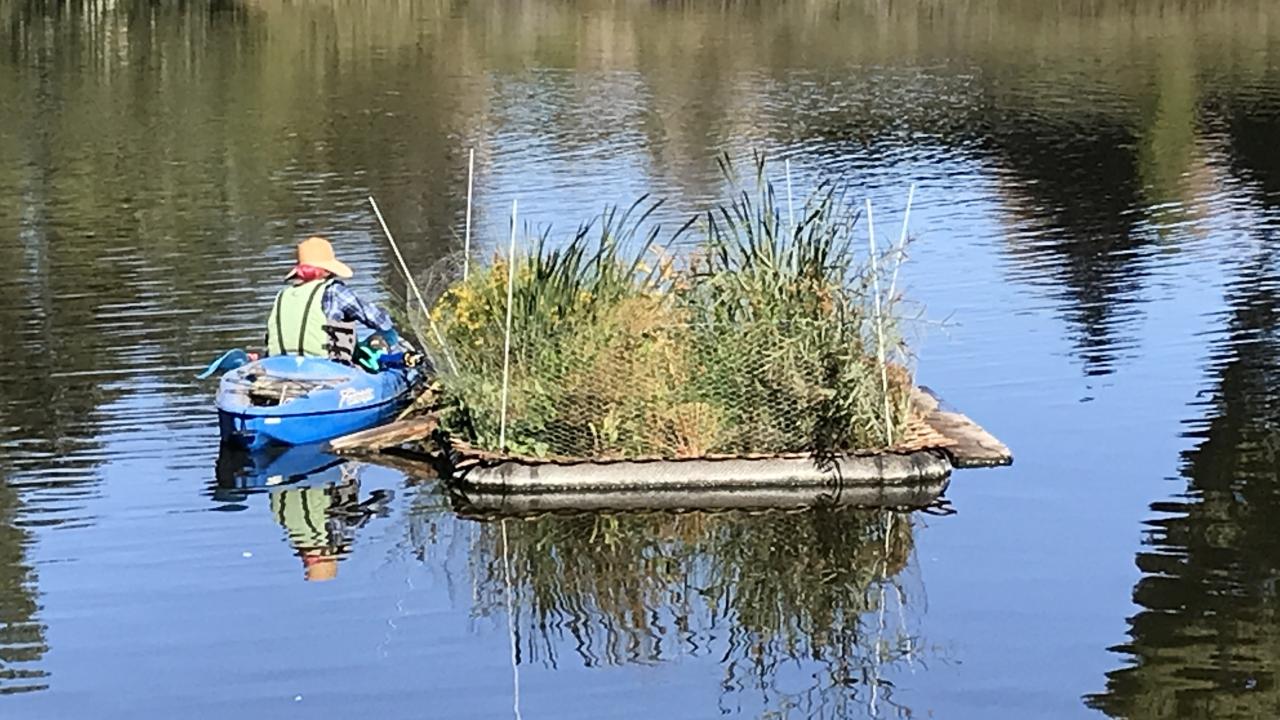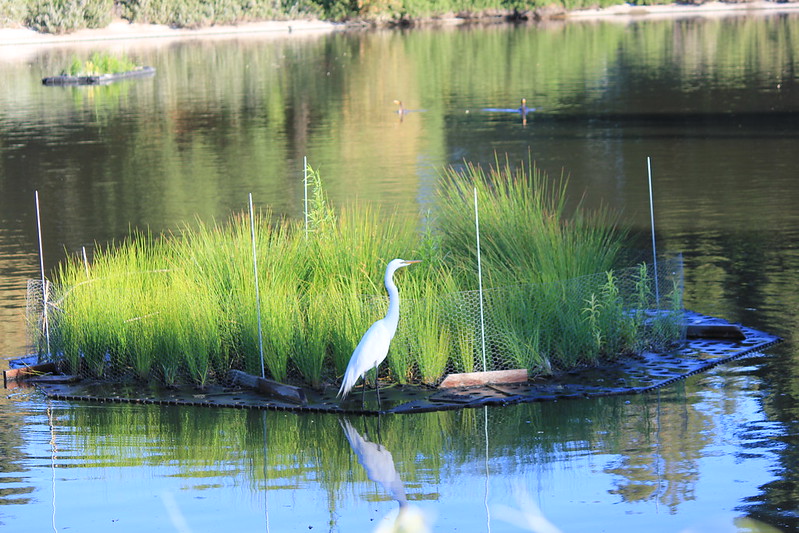
Nitrate Monitoring in the Arboretum Waterway
New Probe Allows for Instantaneous Measurements
Quick Summary
- High nitrate levels in water can be dangerous and result in toxic algae blooms.
- TGIF grant provides funding for specialized probe to measure nitrate levels in Arboretum Waterway.
- Depending on results, more floating islands in the Arboretum Waterway may be considered.

Water Quality Update
March 29, 2022
Fernanda Arao, Learning by Leading Waterway Stewardship co-coordinator reports that based on reading from the probe, the four small floating islands in the Waterway's west end have had a negligible effect on the Waterway's nitrate levels. However, the islands also provide an increased level of habitat for local fauna and she reports, "The turtles, birds, slugs and spiders love them!"
The Waterway Stewardship interns continue to monitor the Arboretum Waterway. Next they will report on any water quality changes that result from the floating solar panel installation that powers a nearby water fountain aerator.
A new project is underway at the UC Davis Arboretum and Public Garden. Led by Fernanda Arao, co-coordinator of the Learning by Leading™ Waterway Stewardship Internship and senior studying evolution, ecology, and biodiversity, she and her fellow students are assessing the impact of the Arboretum Waterway’s floating islands on water quality with a new TGIF-funded nitrate probe.
Upon visiting the UC Davis Arboretum and Public Garden, you are likely to have set your sights on a vibrant creek-like waterway that is lively with aquatic birds, turtles, fish, and vegetation. You may not be aware that in addition to being a popular community and regional destination, the Arboretum Waterway hosts an abundance of flora and fauna and serves as a catchment for stormwater and treated wastewater from the Davis campus. This water is then transported into the culturally and environmentally significant Putah Creek.
For these reasons, water quality monitoring and upkeep of the Arboretum Waterway are critically important for the health of the UC Davis community and the water body's natural ecology. Because stormwater and treated wastewater are high in nitrates and phosphates, the Arboretum Waterway experiences higher levels of these minerals which puts it at increased risk of toxic algal blooms, also known as cyanoHABs. Not only can these blooms result in mass die-offs of fish, they can also be harmful to visitors and their pets.
Fortunately, students and staff prioritize efforts to understand, maintain, and improve the water quality of the Arboretum Waterway. In 2018, the first of the artificial floating islands was designed and installed in the Arboretum Waterway by Learning by Leading Waterway Stewardship interns as a demonstration project. Now there are a total of four!
Artificial floating islands can reduce nitrate concentrations, lower water temperature, and provide wildlife habitat. Now, students can assess the impacts of the floating islands using a new nitrate probe —a device that can continuously measure nitrate concentrations in water. In the past, nitrate data was gathered by sending water samples to undergo laboratory testing, but due to the COVID-19 pandemic, laboratory testing for water quality parameters came to a halt. Now, thanks to the probe, nitrate measurements can be resumed and acquired instantaneously, allowing for more time efficient planning decisions.
If the data reveals that floating islands effect reduced nitrate concentrations, it is likely that more will be constructed and released into the Arboretum Waterway. In addition to assessing the floating islands, the probe opens new doors for future sustainable projects and long-term water quality monitoring.
This project was made possible by a grant provided by The Green Initiative Fund. The Green Initiative Fund is a UC Davis program that offers funding to campus projects contributing to sustainable development.
